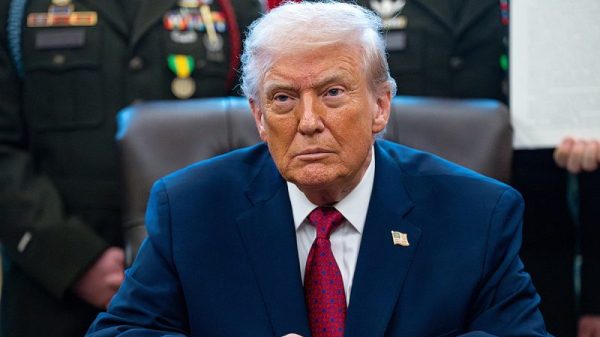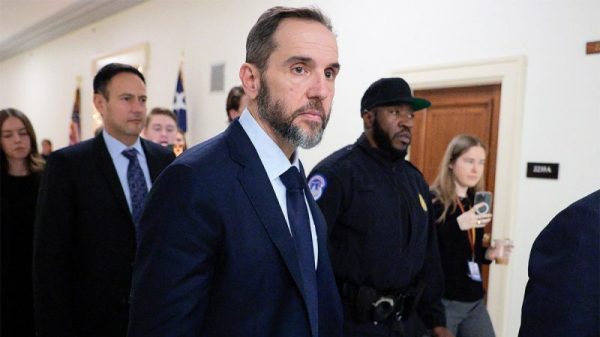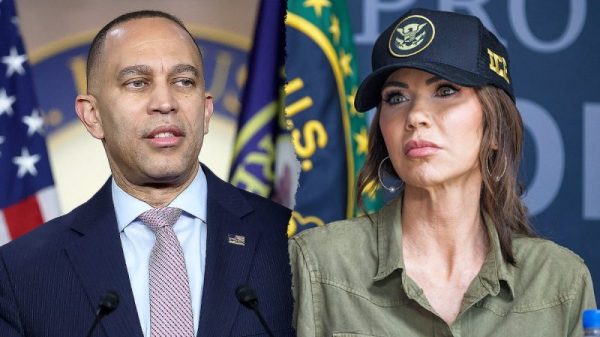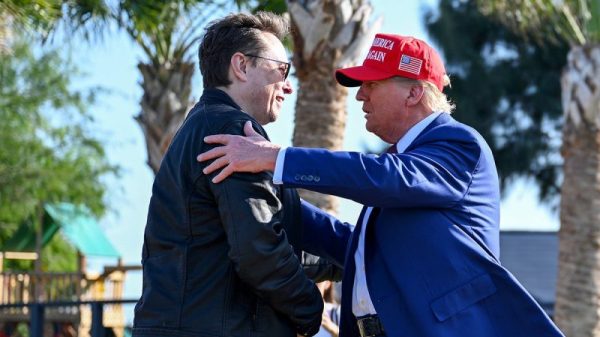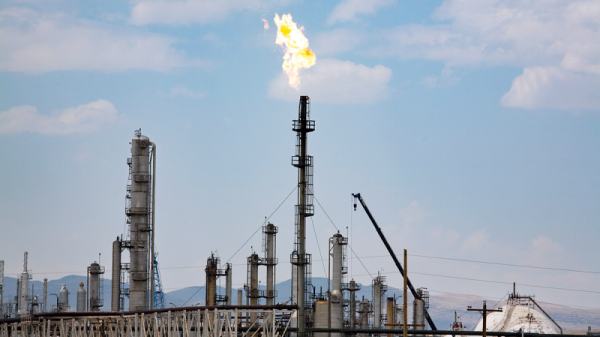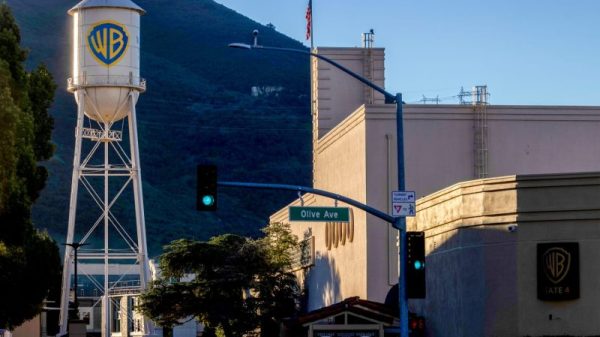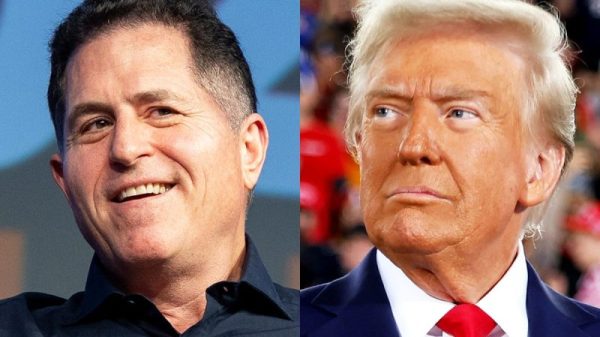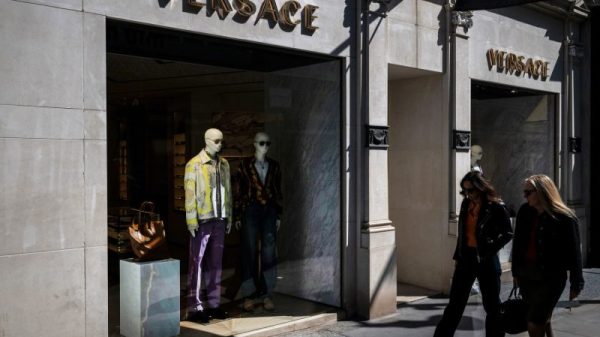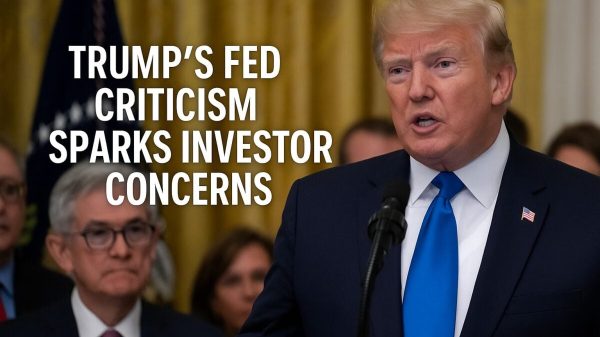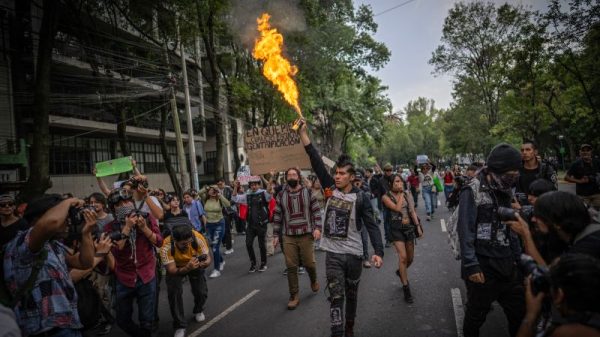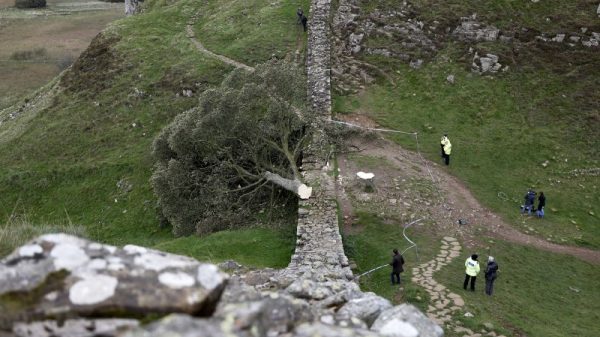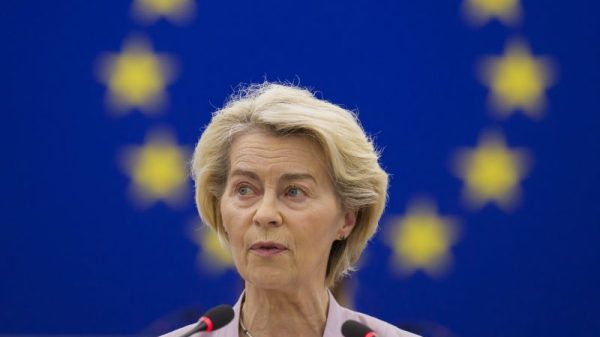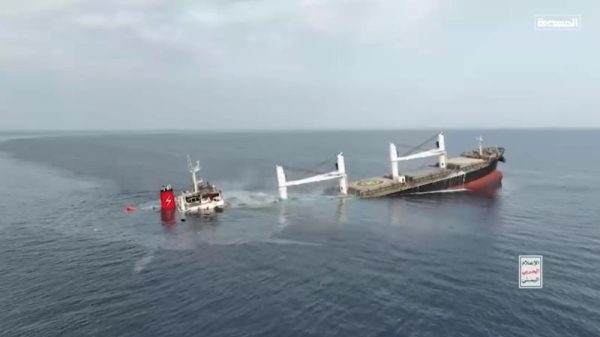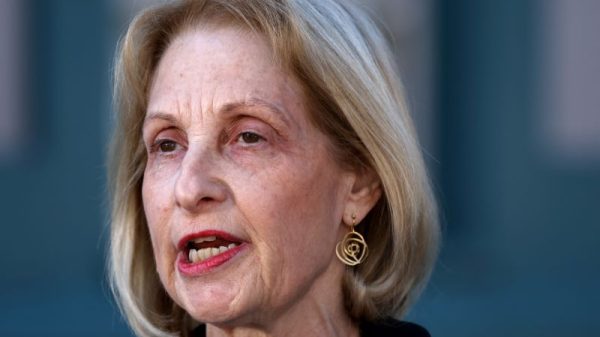Israel and the Palestinian militant group Hamas are fighting a war that has killed thousands and resulted in a devastating humanitarian crisis in Gaza.
The Israeli military began an offensive on the Palestinian enclave after Hamas militants launched a brutal assault on Israel on October 7 – the biggest terrorist attack in the country’s history – with gunmen killing more than 1,400 people and taking more than 200 people hostage, according to Israeli authorities.
Israel’s retaliation has been fierce, with an air, sea and ground campaign on Gaza as well as a total siege on the territory to choke its Hamas rulers.
The conflict has led to a humanitarian catastrophe in Gaza, with more than 10,000 people killed there, according to the Palestinian health ministry in Ramallah. Residents of the Strip, which is home to more than 2 million Palestinians, are trapped, lacking basic supplies and with nowhere to escape Israel’s bombs.
December 21, 2023 Israel-Hamas war
In response, aid groups, Arab states and the United Nations have repeatedly called for a ceasefire to allow for the delivery of food, water, medical supplies and other necessities.
Israel has so far shown no signs of scaling back its military operation, which is only widening, as it vows to eliminate Hamas once and for all.
Here’s what we know about the war.
How did the conflict start?
In an operation it called “Al-Aqsa Storm,” Hamas fired thousands of rockets towards Israeli towns on October 7, before breaking through the heavily fortified border fence with Israel and sending militants deep into Israeli territory.
There, gunmen killed civilians and soldiers, and took more than 200 hostages, including dozens of foreign nationals. The attacks were unprecedented in tactics and scale, as Israel hasn’t faced its adversaries on its own territory since the 1948 Arab-Israeli war. It has also never faced a terror attack of this magnitude that took the lives of so many civilians.
How did Israel react?
Israel responded by launching “Operation Swords of Iron,” with the goal of eliminating Hamas. It imposed a complete siege on Gaza, blocking food, water and fuel from entering, and launched a ground offensive that saw its troops enter deep into the enclave and effectively split it in two.
Amid the bombardment, Gaza residents were advised by Israel to evacuate their homes in the north and move southwards as troops sought to encircle Gaza City, which Israel described as “the fortress of Hamas’s terrorist activities.”
What is Hamas?
Hamas is an Islamist organization with a military wing that emerged in 1987 out of the Muslim Brotherhood, a non-violent Sunni Islamist group that was founded in the late 1920s in Egypt.
Hamas, like most Palestinian factions and political parties, says that Israel is an occupying power and that it is trying to liberate the Palestinian territories. It has over the years claimed many attacks on Israel and has been designated as a terrorist organization by the United States, the European Union and Israel.
Unlike some other Palestinian factions, Hamas refuses to engage with Israel and does not recognize its right to exist. In 1993, it opposed the Oslo Accords, a peace pact between Israel and the Palestine Liberation Organization (PLO) that saw the PLO give up armed resistance against Israel in return for promises of an independent Palestinian state alongside Israel. The Accords also established the Palestinian Authority (PA) in the Israeli-occupied West Bank.
Hamas seized power in Gaza in 2007, and presents itself as an alternative to the PA.
Israel occupied Gaza from 1967 to 2005, when it unilaterally withdrew its troops and settlers, but continued to exert control over the territory’s sea, airspace and land crossings.
The vast majority of Gaza’s residents are descendants of refugees whose ancestors either fled or were forced out of their homes in what is now Israel. The enclave is one of the most densely populated places on earth.
What is the situation in Gaza?
Before the war, Israel and Egypt imposed a blockade of Gaza that strictly controlled the movement of people and goods both into and out of the territory.
But Israel has now imposed an even tighter siege, banning the entry of food, water and fuel, which the United Nations has said amounts to “collective punishment.” Residents are grappling with severe shortages and power is running out as fuel dwindles, with hospitals ill-equipped to treat the wounded as Israel continues its bombardment. Doctors often operate on patients without anesthesia, and maternity and postnatal services are close to non-existent. As the water system collapses, some Gazans have been forced to drink dirty, salty water, sparking concerns of a health crisis and fears that people could start dying from dehydration.
The UN’s Office for the Coordination of Humanitarian Affairs (OCHA) has said that more than 1.4 million people in Gaza are now internally displaced. More than half a million are seeking refuge in facilities run by the UN’s Relief and Works Agency for Palestine Refugees (UNRWA), which are accommodating numbers three times their intended capacity.
Thousands of people are sheltering in hospitals and other civilian facilities, which health workers say have been targeted by Israel.
The World Health Organization (WHO) has said that it has documented at least 102 attacks on health care facilities in Gaza since October 7. Israel has said it is targeting Hamas operatives in the strip, and accused Hamas of embedding itself in civilian areas, as well as using civilians as human shields.
Out of those who have been killed in the enclave, more than 4,100 are children, according to the Gazan health ministry.
The enclave has been described by the UN as “a graveyard for children.”
What is the Rafah crossing?
Israel has shut its two border crossings with Gaza. And with aid desperately needed, the only route for its entry into the territory is through the Rafah Crossing with Egypt.
Rafah is the sole border crossing between Gaza and Egypt, falling along an 8-mile (12.8-kilometer) fence that separates Gaza from the Sinai Peninsula.
The crossing has been essential for the delivery of aid and evacuation of wounded Palestinians during previous wars with Israel.
Following intense negotiations, the crossing was finally opened more than three weeks into the war, allowing a small number of wounded Palestinians and foreign nationals to leave Gaza. Aid trucks have started entering the enclave in very small numbers
How has the international community reacted to the war?
The US has largely supported Israel’s operation in Gaza throughout the war, despite heavy criticism from some opponents at home and mass protests across the world calling for a ceasefire.
Arab leaders have delivered strong messages to Israel, especially against what they perceive as plans to expel Palestinians from Gaza into Egypt, and those in the West Bank to Jordan.
US President Joe Biden has said that it would be a “mistake” for Israel to occupy Gaza, but Israeli Prime Minister Benjamin Netanyahu said that Israel will have the “overall security responsibility” in Gaza for an “indefinite period” after the war ends.
Some of Hamas’ allies in the region, such as Iran and Lebanon’s powerful Iran-backed Hezbollah movement, have also warned Israel and Washington against continued bombing of Gaza.
Amid rising death tolls and an international outcry over the humanitarian situation in Gaza, however, the Biden administration has been warning Israel that its support for the carnage in the enclave is running out.
What will it take for de-escalation?
Israeli Prime Minister Benjamin Netanyahu has said his government opposes any temporary ceasefire in Gaza unless Hamas frees all the hostages it holds, adding that it will continue to block fuel from entering the strip. Netanyahu has however said he is open to short pauses taking place.
Qatar, a US ally that maintains ties with Hamas, has been trying to mediate deals to free hostages, as well as evacuate foreign nationals from Gaza.
Four hostages held by Hamas – two Israelis and two American-Israelis – have so far been freed through Qatari and Egyptian mediation.
How likely is this war to escalate into a regional conflict?
The Hamas attack raised concerns that the conflict could spread across the region, with the potential entry of Hezbollah from Lebanon as well as Israel’s arch enemy Iran.
The US has warned regional players against getting pulled into the war, calling on Iran and its proxies not to escalate.
The US military has said that a guided missile submarine has arrived in the Middle East, a message of deterrence directed at regional adversaries. The Pentagon last month ordered a second carrier strike group to the eastern Mediterranean and sent Air Force fighter jets to the region.
Iran, which backs Hamas, has denied involvement in the October 7 attack but has said that it morally supports the “anti-Israel resistance” – which includes Hamas, Hezbollah and other Iran-backed militias.
On Israel’s northern border, Iran-backed Hezbollah has engaged in an exchange of fire since the Gaza war began. Those altercations have however been confined to the border areas.
There have also been skirmishes in Syria and Iraq, from which Iran-backed militias have launched multiple drone attacks on US forces. Yemen’s Iran-backed Houthis have attempted an aerial attack on Israel, which Israel’s military said it thwarted.
In a November 3 speech, Hezbollah Secretary General Hassan Nasrallah said his “primary goal” was to achieve a ceasefire in Gaza, and said it was incumbent on the US to implement the cessation of hostilities. The speech appeared to show that Nasrallah’s immediate plans do not include broadening the conflict.

